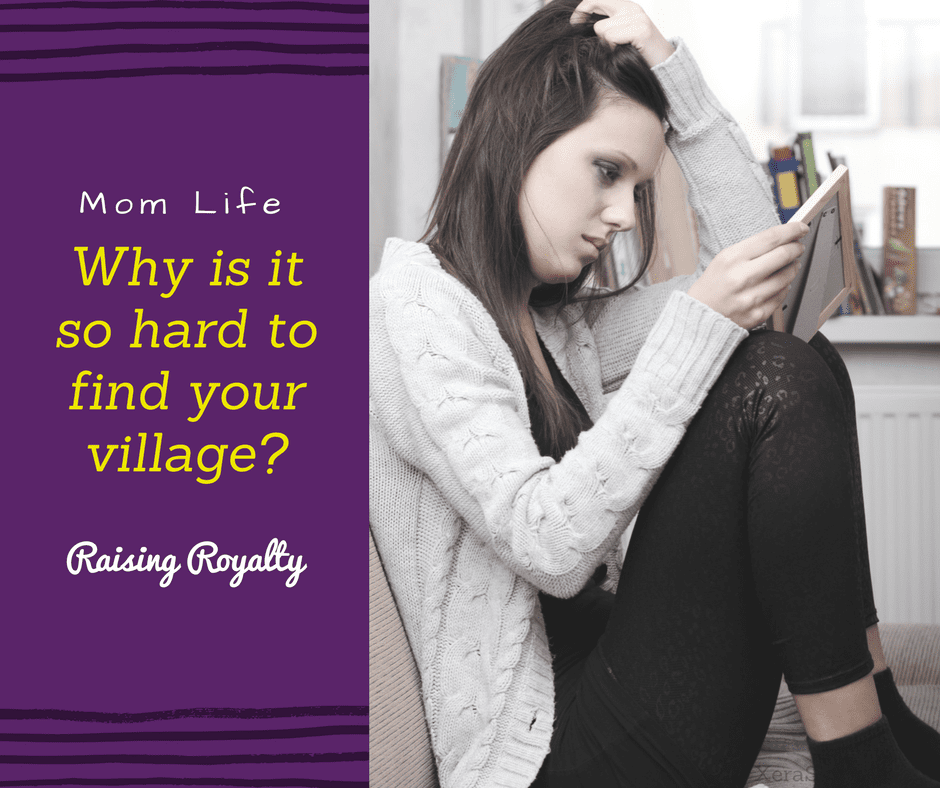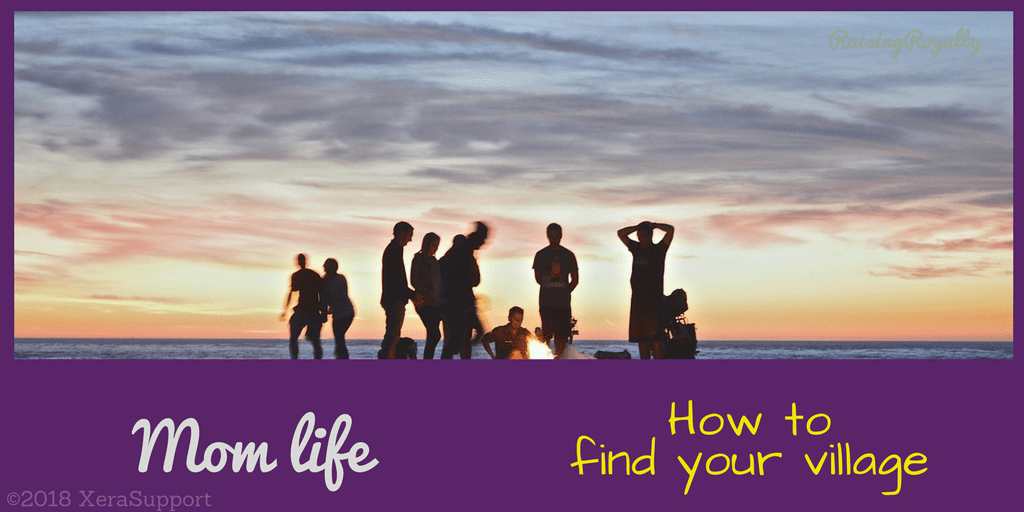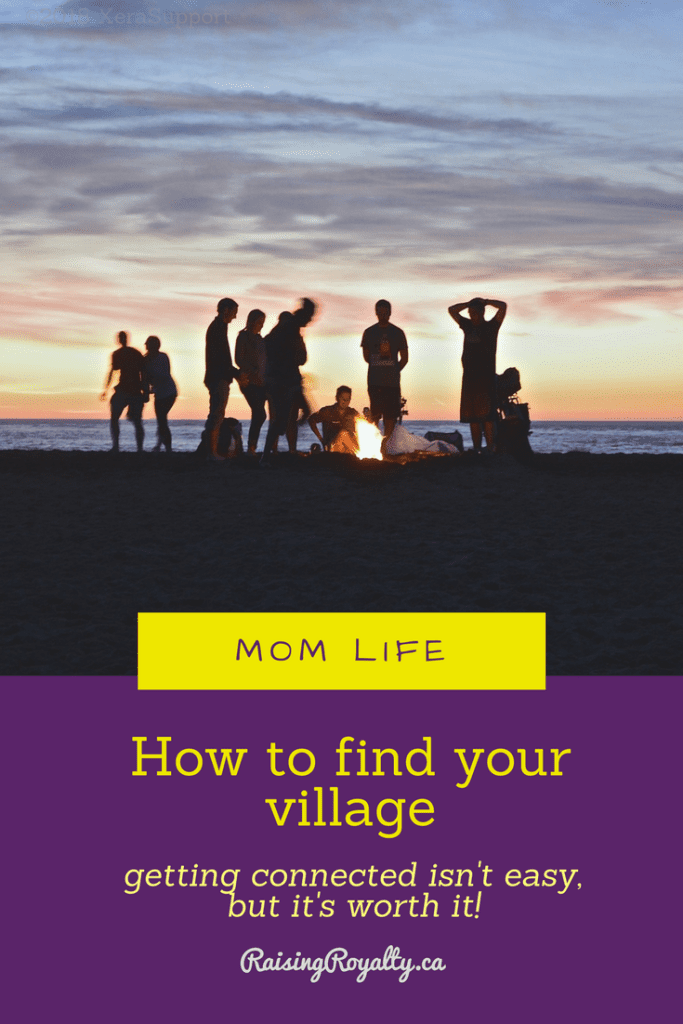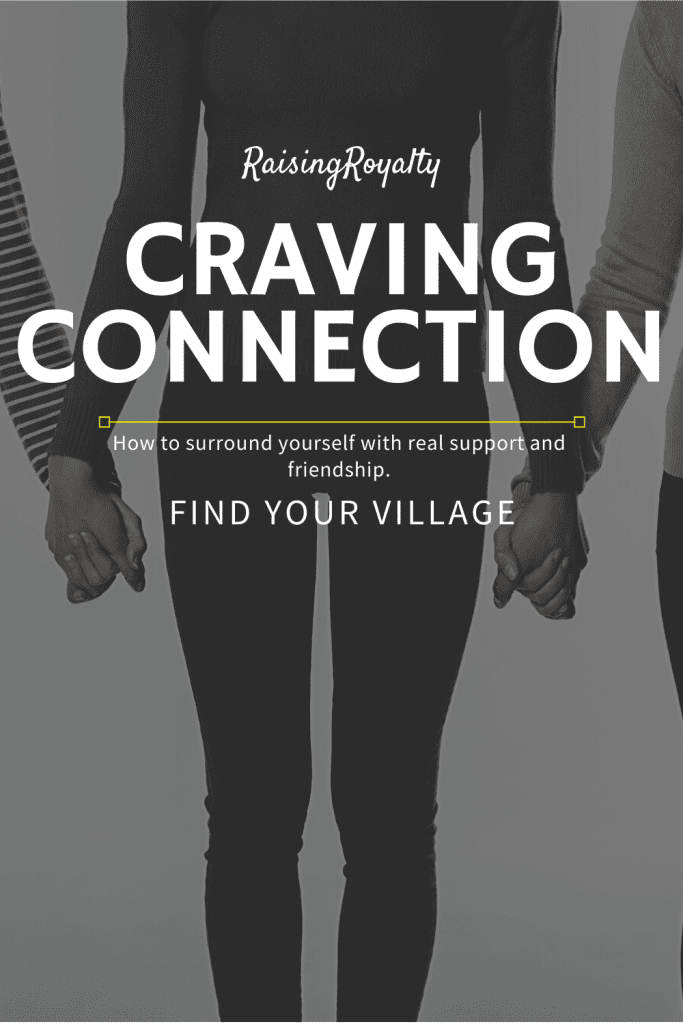

They say it takes a village to raise a child.
There’s some truth to this. Though, to be honest, I’m not sure I want just anyone in my village. However, we all need that support. Because we all crave connection. We want to belong. We want to be known, to be wanted, to be connected to a larger group. So the trick is to know how to find your village.
It’s a common complaint.
In churches, we’re offered connections in small groups or bible studies. In business, we network or join associations in an effort to connect with potential support or future customers. And in parenting, we desperately search for mommy groups and play dates, if only for a bit of adult connection and conversation.
In homeschooling, connecting with support groups, co-ops, sports and field trips is essential to a well-rounded education for our kids. Even medically, the doctors ask how well we’ve connected with family, friends and community. That’s because a lack of connections can be a sign of or lead to increasing health issues, both physically and mentally.
Connections are integral to our being.
We are social creatures. But in a world of increasing connectivity, we are increasingly disconnected.
Before you could join a Facebook group of like-minded individuals, you had to live with those around you. We were less judgmental, at least openly, because we couldn’t just angrily leave a group and start our own.
Before we could jump online and post a blog or twitter rant about perceived shortcomings of our church or government or employer, we learned to criticize with care.
The anonymity of the Internet has removed the personal connection … and we are far more careless with how we treat people.
We crave connection.
Connection is more than just waving hi to the neighbours walking their dog while you’re watering the flowers. It’s more than recognizing the name of someone who posts frequently in your Facebook group.
Connection is knowing and being known.
It’s a sense of shared history, common interests and similar goals. The problem with connection is that it takes time. And in a world of immediate-if-not-yesterday satisfaction, taking the time to create connection is unappealing.
Somehow, with all the time-saving devices we have, we have less time than ever for connections.
I think that once, connection was created in the rhythm of life. Since common household chores took way more time and were much more public, connection happened across the laundry line, at the quilting bee, or in the garden. We weren’t walled off from each other in separate little boxes traveling at high speed on the roads – people walked. You can connect a lot easier when life is a bit slower.
The rhythms of our society beat to a much faster drum. Connection isn’t going to happen organically anymore. In order to know how to find your village and connect, really connect, we have to be much more deliberate.
It seems an impossible task.
Figuring out how to find your village seems just one more priority in a sea of priorities. Can you fit it in between feeding our children, fitting in a bit of exercise and making time for family? What about between work, school and homework? Or soccer practice and dance class?
I don’t know about anyone else, but when I’m waking up tired and going to bed exhausted, trying to find the time and energy to make a connection is harder than ever.


If connection is as important to our health as proper nutrition and the right levels of rest and activity, why is it so hard to do?
There are lots of reasons.
Connections are harder today, period.
We aren’t a 9-to-5 job world. Many parents work split shifts, work odd hours, work telecommuting or have longer commutes. Add to that the “mommy wars” and people are afraid to say hi, lest they risk a whole pile of judgement.
10 years ago you could let your kids play in the front yard without you there — now let a 9 year old go to the park without mom, and police are called. We don’t have the opportunity to talk, to get to know people, because parents are more likely to have their kid in soccer or dance class than just play at the playground.
Then when you are invited out, it’s harder to say yes, because you’re out 3-4-5 times a week anyway. We’re exhausted, as a society. So connecting in general seems like too much work.
When I have deliberately sought out connection, it has been so worth it.
I have made friends. I have found support. And I have created networks. The web of connection has caught me when I fall, and I’ve been able to do the same for others. When I make that space in my life, it has made life that much better.
For me, it started with making the time for a conversation with another mom. On a sunny summer afternoon, I invited a stranger to sit at my table. I figured out how to find your village when I offered my home as a meeting place for strangers with shared goals to sit down and talk. And it wouldn’t have been possible if those strangers-turned-friends weren’t willing to risk coming to a new home, to connect with me.
Connection is lost to fear.
If either my friends or I would have been too afraid to take the risk, the connection would never have happened. We connect when we overcome our fear.
Connection happens when we’re open to it.
If any of my connections had been critical of me, my home or my children, openly or not, we probably wouldn’t have stayed connected for long. While you can’t force a connection – personalities don’t always click – judgmental attitudes and critical comments will ruin it before it has a chance to begin. We connect when we are tolerant of minor irritations and stay open to new viewpoints.
Connection happens when we do it repeatedly.
Today, we are much more spread out, we aren’t all going to the same stores, churches or schools. Connection takes time. If those strangers-turned-friends hadn’t have reciprocated with invitations of their own, the initial connection wouldn’t have gone anywhere. We connect when we are willing to make the time for it.
It’s worth it to deliberately make the space in our lives for connection.
It doesn’t happen automatically, but requires that we choose to create the opportunity. We must mentally overcome the fear, the critical attitudes and the busy-ness in order to make room for connection. But when we do that work, connection turns into support — and into friendship.




This is a great reminder to slow down and truly interact with others. Find your people and enjoy life. Even the introvert in me can appreciate the message. Thank you!
Aww I’m glad it helped! Even us introverts need our own supportive people around us. We just need quality, not necessarily quantity. And if you have both, even better!